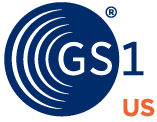The survey revealed the following critical areas that enable supply chain effectiveness and efficiency:
In today's fast-paced and ever-changing global market, organizations face immense pressures from geopolitical tensions, fluctuating demand, and stringent regulatory requirements. To stay competitive, businesses must embrace greater agility, innovation, and sustainability throughout their supply chains.
GS1 US® conducted exclusive research, surveying over 500 supply chain professionals across five industries in companies of all sizes to gain insights into the strategies employed by the most confident organizations to manage disruptions and build resilient supply chains.
- Data Management: Companies with centralized systems that collect and integrate data in real time are nearly three times more likely to trust their data accuracy compared to those without such systems.
- Sustainability: While 99% of companies consider sustainability important, only half have implemented concrete sustainability practices.
- Operations and Resilience: Full adoption of GS1 Standards is correlated with high confidence in managing disruptions, and centralized data management systems are pivotal in increasing supply chain confidence.
- Automation: Seventy-two percent of companies who are highly confident in their supply chains are fully automated in their approach, compared to only 19% of companies overall.
- Innovation: Organizations that implement innovations like real-time tracking technologies report a 68% improvement in visibility and inventory control compared to those without such systems.
Supply chain confidence is related to the adoption of GS1 Standards*
77%
Report higher confidence in managing supply chain disruptions
70%
Feel improving sustainability in the supply chain is important
63%
Are more adept at trading partner collaboration
60%
Trust the accuracy and reliability of shared data
60%
Are more likely to implement cutting-edge innovations like real-time tracking, predictive analytics, and radio frequency identification (RFID) technologies
*Survey respondents have self-identified their level of adoption of GS1 Standards
The Adoption of GS1 Standards for a More Efficient Supply Chain
Industry-specific insights in GS1's research reveal that smaller companies face unique challenges. Only 38% of companies with 1-100 employees have fully adopted GS1 Standards, often due to perceived costs and complexity. However, those that do adopt these standards experience greater data accuracy and innovation.
Managing regulatory compliance is a significant hurdle, with only about half of companies reporting effective management of various aspects of compliance. To improve compliance, organizations should develop effective traceability processes, continuously evaluate regulations, and deploy audits. In this vein, trading partner collaboration is crucial for optimizing supply chain efficiency.
Overall, building an agile, innovative, and sustainable supply chain requires a combination of key components, including the adoption of GS1 Standards, automated processes, centralized data management, and real-time, accurate data. And when all of these are combined with effective collaborative partnerships, companies can achieve high levels of agility, sustainability, and innovation—and power greater supply chain confidence.






